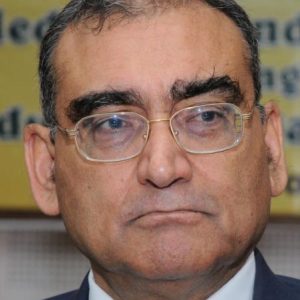
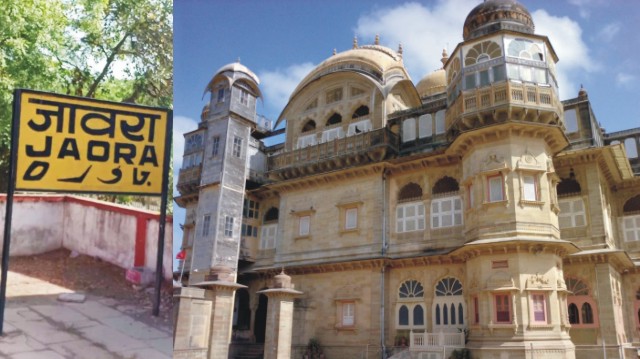
Even 2000 years of their diaspora from Palestine, the Jews have been saying ”If I forget you O Jerusalem, may my right hand perish”(Psalm 137:5).
Similarly, for 200 years we Katjus have been saying ”If we forget you O Jaora, may our right hands perish”
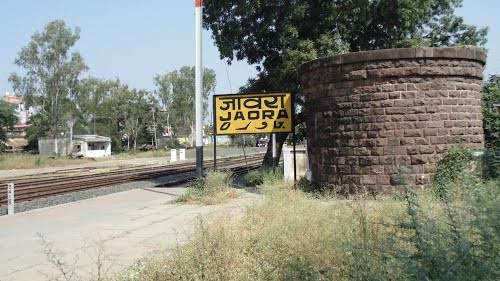 Jaora is a small town in Ratlam district in Western Madhya Pradesh (on the border of M.P. and Rajasthan). My family still has deep emotional attachment to it.
Jaora is a small town in Ratlam district in Western Madhya Pradesh (on the border of M.P. and Rajasthan). My family still has deep emotional attachment to it.
We are Kashmiri Pandits. My ancestor Pt. Mansa Ram Katju migrated from Kashmir about 200 years ago, and took up service in the Court of the Nawab of Jaora, and thereafter my family continued to live in Jaora for several generations.
We can never forget our debt to Jaora which gave us our bread and butter for 200 years.
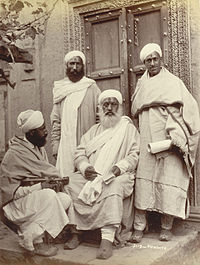
All Kashmiri Pandits who migrated around that time, whether the ancestor of Pt. Jawahar Lal Nehru or of Sir Tej Bahadur Sapru or of other Kashmiri Pandits who had migrated from Kashmir to the plains, came in exactly the same way, that is, they got service in the Court of some Maharaja or Nawab.
At that time part of India was under direct British rule, and part of it was under princely states, that is, under some Maharaja or Nawab.
At that time there was no Banihal tunnel, so the Kashmiri Pandits had to come from Kashmir via Lahore, and they took up service mostly in princely states in Western India, that is, Rajasthan, Western Madhya Pradesh, etc.
They got employment in these states as the Court language there was Urdu and Persian, in which we Kashmiri Pandits were highly proficient.
Although we had migrated from Kashmir a long time back, we intermarried only among ourselves, and we retained our food habits, and were non vegetarians, unlike the Pandits of the plains who were mostly vegetarians.
Our favourite dishes still are roganjosh, yaqnee, kabargah, kofta, etc (which are mutton dishes) and damaaloo, haak, etc (which are vegetarian dishes).
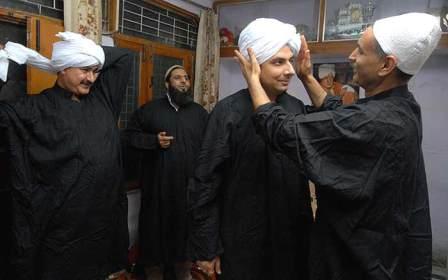
However, after one or two generations, we Kashmiri Pandits who had migrated from Kashmir a long time ago forgot the Kashmiri language, which is very different from Hindi.
Thus, the main difference between the Kashmiri Pandits who stayed back in the valley (until the mass migration after 1990 due to persecution) and those who migrated a long time back (like my family) who speak only Hindi and English, is that the former can speak Kashmiri, while the latter cannot.
My wife is Kashmiri speaking (as her family had remained in Kashmir), and even now I cannot understand when she speaks to her relatives (although we were married in 1970).
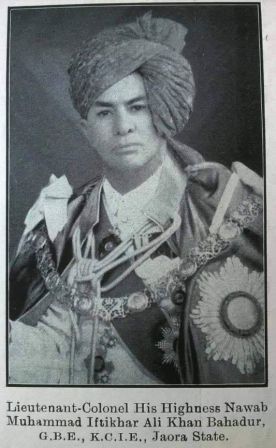
As I said earlier, my ancestor who migrated from Kashmir about 200 years ago got service in the Court of the Nawab of Jaora. At that time Jaora Riyasat was a big princely state in what was then known as the Central Provinces (now known as Madhya Pradesh), next only to Gwalior, Indore and Bhopal.
My ancestors served in Jaora Riyasat for several generations, until my grandfather Dr. K.N. Katju started law practice in U.P. (first in Kanpur district court, and from 1914 in the Allahabad High Court).
My grandfather’s grandfather, Pt. Badri Nath Katju, was a high official in Jaora state. He died at the age of 42 or so, but before dying he requested his friend, an Englishman who was the British political agent to the Central Indian Provinces with his headquarters in Agar (near Jaora), to help appointing his son (my great grandfather, Pt. Tribhuwan Nath Katju) in his place after his death, as there was no other bread winner in his family.
The British officer gave his word, and was true to it. Consequently, Tribhuwan Nath was appointed, though he was only about 13 years of age at that time, on the same post his father had held, and the burden of supporting the entire Katju family fell on his tiny shoulders.
He often used to say that when boys of his age were playing he had to work the whole day, as he had to support the entire family.
The Nawab of Jaora, Iftikhar Ali Khan, was about 15 years younger than my great grandfather, but they were very fond of each other.
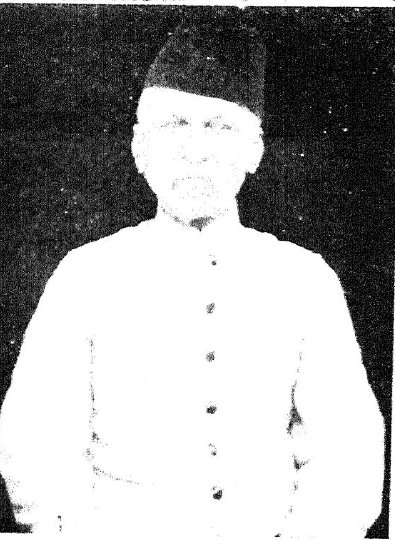
On the retirement of my great grandfather as Dewan of Jaora in 1920 at the then retirement age of 55, the Nawab fixed his pension at the last salary drawn, which was for that time a big sum of Rs. 300 p.m.
Even after retirement Pt. Tribhuwan Nath would attend the Court of the Nawab at least once a week, and the Nawab consulted him on important matters. While horse riding if the Nawab saw Pt Tribhuwan Nath on his walk, he would dismount (something he would not do for anyone else), and the two would exchange salaams.
Pt. Tribhuwan Nath used to go to Allahabad every winter for a few months to be with his son, Dr. Kailash Nath Katju (who had built up a roaring practice in Allahabad High Court), but the last time he went to Allahabad was in 1934 when he received a letter from the Nawab who wrote “Panditji, aapke baghair mera man naheen lagta hai” (Panditji, I am not happy without you ).
On receiving this letter Pt. Tribhuwannath caught the first train from Allahabad to Jaora, where he met the Nawab and told him ”Nawab saheb, yeh baat aapne mujhse pehle kyon nahi kahi?” (Nawab saheb, why did you not tell this to me earlier?), and for the next 11 years until his death he never left Jaora, knowing that the Nawab would be unhappy unless Panditji (as Pt. Tribhuwan Nath was called) was around..
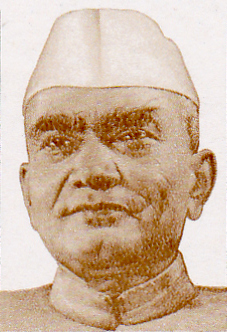
When Pt. Tribhuwan Nath died in 1945 the Nawab got an announcement made throughout Jaora that he was the eldest son of Panditji, so the condolences should be first made to him, and only thereafter to my grandfather Dr. K.N. Katju.
My grandfather’s life is mentioned in his autobiography ‘The Days I Remember’ published by Universal Law Publishing Co. which may be seen by those interested.
He was a top lawyer of Allahabad High Court and a freedom fighter, who later became Governor of Odisha and West Bengal, Union Minister for Home, Law and Defence (in Pt Nehru’s cabinet), and then Chief Minister of Madhya Pradesh.
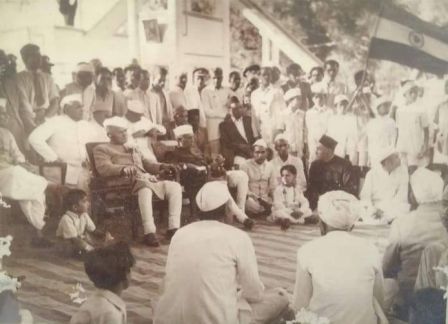
As Union Home Minister he persuaded Prime Minister Nehru to visit Jaora, and we have photographs of that visit.
My father was a Judge of Allahabad High Court, and my uncle was its Chief Justice.
Although we had left Jaora and had shifted to Allahabad, my family continues to have a deep emotional attachment to Jaora because we had eaten its salt after migrating from Kashmir, and can never forget our debt to Jaora.
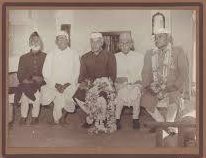
I have visited Jaora several times with my family members, and get nostalgic whenever I go there. Suddenly I am transported in my thoughts to the presence of my ancestors who had lived there for several generations, and in my imagination I converse with them and seek their blessings and guidance.
During a visit to Bhopal (the capital of Madhya Pradesh) when I was a Supreme Court Judge I met the Chief Minister, Mr Shiv Raj Singh Chauhan, and said that I would like something to be done for Jaora. He asked me what he could do. I made some suggestions,and he promised to do it. I told him that I was making the request because I have emotional attachment to Jaora, not because I wanted anything for myself.
Long live Jaora! Long live its people! ![]()
___________
Also Read:
TRUTH VS FALSEHOOD: BBC – Who is afraid?
Mughal Gardens – Name Changed, But Why?
Industrialization versus Environmental Degradation
Punjab – How a deadly cocktail of Agri-Water-Energy nexus going to destroy it?

Disclaimer : PunjabTodayTV.com and other platforms of the Punjab Today group strive to include views and opinions from across the entire spectrum, but by no means do we agree with everything we publish. Our efforts and editorial choices consistently underscore our authors’ right to the freedom of speech. However, it should be clear to all readers that individual authors are responsible for the information, ideas or opinions in their articles, and very often, these do not reflect the views of PunjabTodayTV.com or other platforms of the group. Punjab Today does not assume any responsibility or liability for the views of authors whose work appears here.
Punjab Today believes in serious, engaging, narrative journalism at a time when mainstream media houses seem to have given up on long-form writing and news television has blurred or altogether erased the lines between news and slapstick entertainment. We at Punjab Today believe that readers such as yourself appreciate cerebral journalism, and would like you to hold us against the best international industry standards. Brickbats are welcome even more than bouquets, though an occasional pat on the back is always encouraging. Good journalism can be a lifeline in these uncertain times worldwide. You can support us in myriad ways. To begin with, by spreading word about us and forwarding this reportage. Stay engaged.
— Team PT


Copyright © Punjab Today TV : All right Reserve 2016 - 2024 |